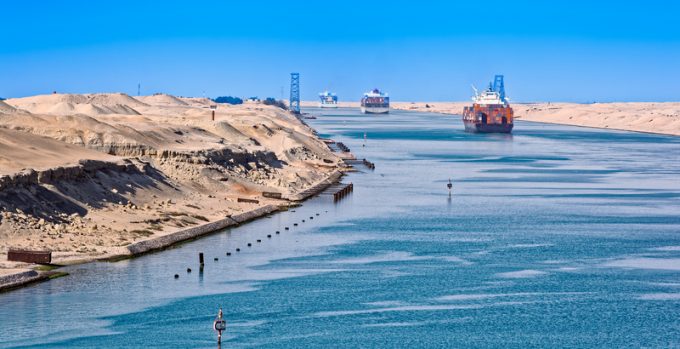Resumption of Suez transits in doubt after return of Red Sea hostilities
Hope for a resumption of Suez Canal transits by container lines were dented over the ...

The Red Sea crisis has seen liner operators operating at least 13 ships on each Asia-Europe string, and this is unlikely to change, even if Suez Canal transits resume, according to Alphaliner analyst Jan Tiedemann.
He told the Korea Ocean Business Corporation’s recent maritime conference that this deployment had held off more vessel supply and suggested that liner operators should continue sailing round the Cape of Good Hope, if possible.
He said: “I think shipping companies ...
Volcanic disruption at Anchorage could hit transpacific airfreight operations
Macron calls for ‘suspension’ – CMA CGM's $20bn US investment in doubt
Forwarders stay cool as US 'liberation day' tariffs threaten 'global trade war'
Shippers snap up airfreight capacity to US ahead of tariff deadline
De minimis exemption on shipments from China to the US will end in May
Tighter EU import requirements proving 'a challenge' for forwarders
Looming Trump tariffs will create 'a bureaucratic monster' for Customs

Comment on this article